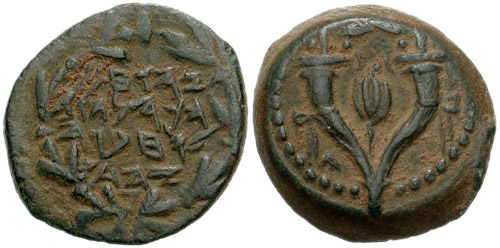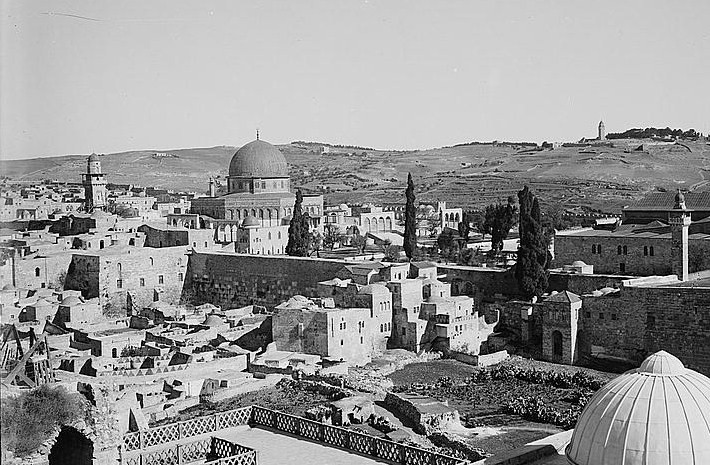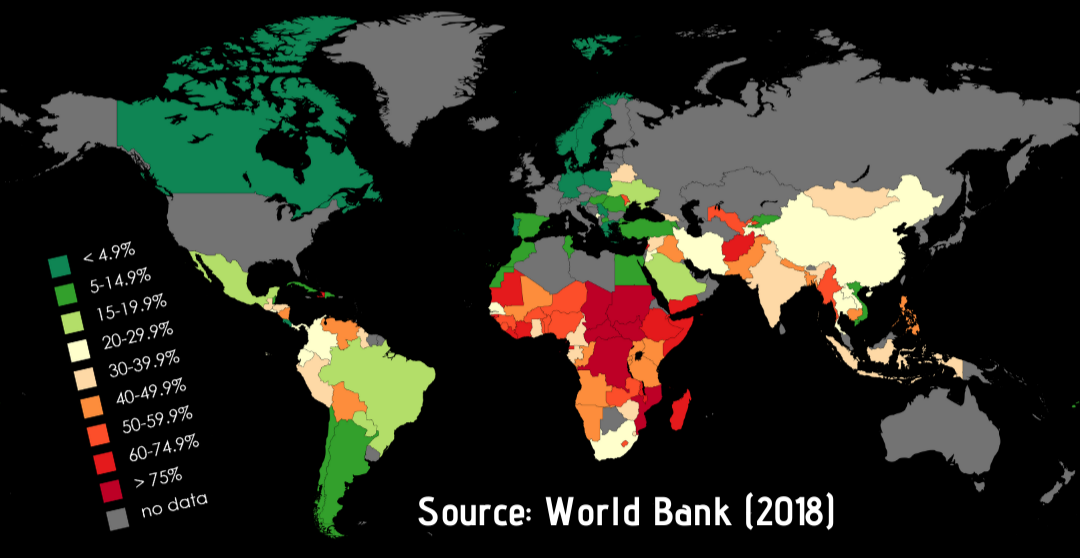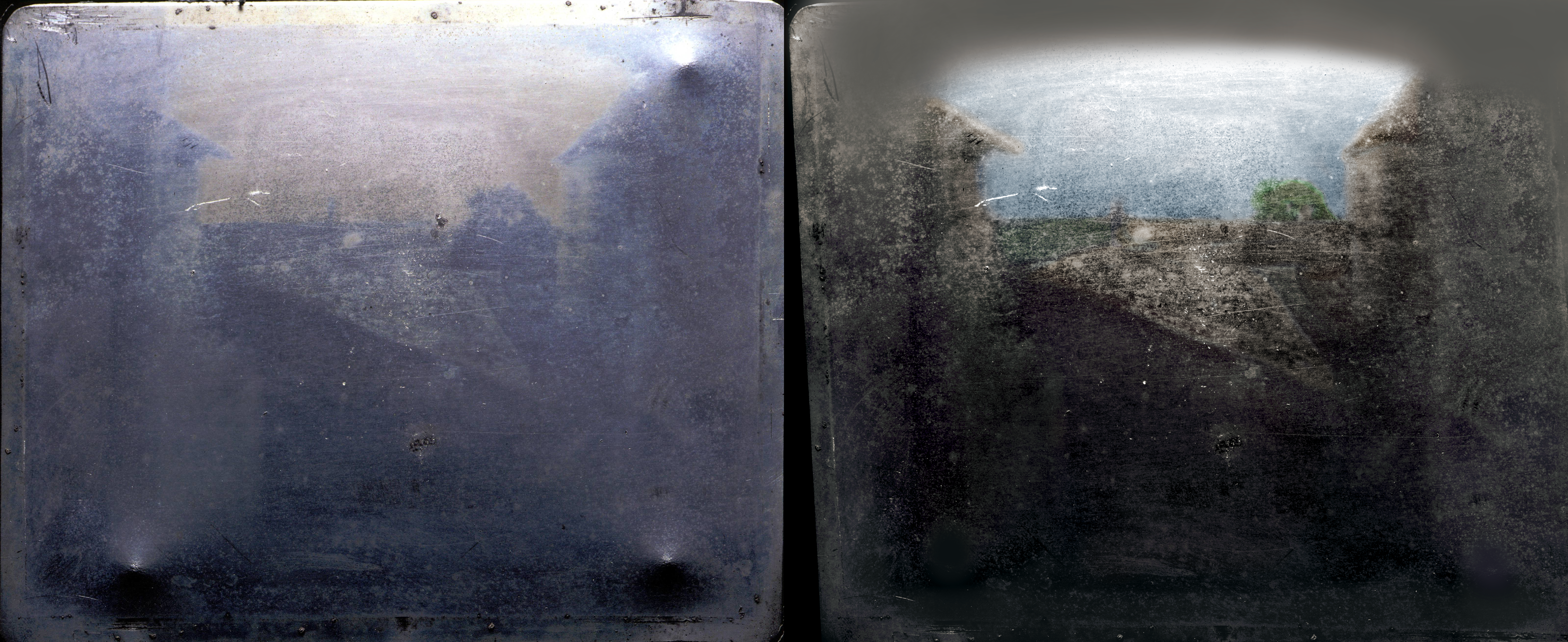|
Vincent Lemire
Vincent Lemire (born 1973) is a French historian. In 1998 Lemire obtained the Agrégation for History. He received his doctorate in 2006 with his work ''La Soif de Jerusalem'' (lit. "The Thirst of Jerusalem"), which was published as a book in 2011. His book ''Jerusalem 1900'', published in 2013, was translated into several languages. Lemire works as lecturer at the University of Paris-Est Marne-la-Vallée and director of the European Open Jerusalem project, funded by the European Research Council. Lemire's research topics are the History of the Middle East, in particular Jerusalem and its Moroccan Quarter, and the history of the French slums from the 1930s to the 1970s. He also deals with the History of photography. Awards In 2013 Lemire was awarded the Prix Augustin Thierry Augustin Thierry (or ''Jacques Nicolas Augustin Thierry''; 10 May 179522 May 1856) was a French historian. Although originally a follower of Henri de Saint-Simon, he later developed his own approach to ... [...More Info...] [...Related Items...] OR: [Wikipedia] [Google] [Baidu] |
Paris
Paris () is the capital and most populous city of France, with an estimated population of 2,165,423 residents in 2019 in an area of more than 105 km² (41 sq mi), making it the 30th most densely populated city in the world in 2020. Since the 17th century, Paris has been one of the world's major centres of finance, diplomacy, commerce, fashion, gastronomy, and science. For its leading role in the arts and sciences, as well as its very early system of street lighting, in the 19th century it became known as "the City of Light". Like London, prior to the Second World War, it was also sometimes called the capital of the world. The City of Paris is the centre of the Île-de-France region, or Paris Region, with an estimated population of 12,262,544 in 2019, or about 19% of the population of France, making the region France's primate city. The Paris Region had a GDP of €739 billion ($743 billion) in 2019, which is the highest in Europe. According to the Economist Intelli ... [...More Info...] [...Related Items...] OR: [Wikipedia] [Google] [Baidu] |
France
France (), officially the French Republic ( ), is a country primarily located in Western Europe. It also comprises of Overseas France, overseas regions and territories in the Americas and the Atlantic Ocean, Atlantic, Pacific Ocean, Pacific and Indian Oceans. Its Metropolitan France, metropolitan area extends from the Rhine to the Atlantic Ocean and from the Mediterranean Sea to the English Channel and the North Sea; overseas territories include French Guiana in South America, Saint Pierre and Miquelon in the North Atlantic, the French West Indies, and many islands in Oceania and the Indian Ocean. Due to its several coastal territories, France has the largest exclusive economic zone in the world. France borders Belgium, Luxembourg, Germany, Switzerland, Monaco, Italy, Andorra, and Spain in continental Europe, as well as the Kingdom of the Netherlands, Netherlands, Suriname, and Brazil in the Americas via its overseas territories in French Guiana and Saint Martin (island), ... [...More Info...] [...Related Items...] OR: [Wikipedia] [Google] [Baidu] |
History
History (derived ) is the systematic study and the documentation of the human activity. The time period of event before the History of writing#Inventions of writing, invention of writing systems is considered prehistory. "History" is an umbrella term comprising past events as well as the memory, discovery, collection, organization, presentation, and interpretation of these events. Historians seek knowledge of the past using historical sources such as written documents, oral accounts, art and material artifacts, and ecological markers. History is not complete and still has debatable mysteries. History is also an Discipline (academia), academic discipline which uses narrative to describe, examine, question, and analyze past events, and investigate their patterns of cause and effect. Historians often debate which narrative best explains an event, as well as the significance of different causes and effects. Historians also debate the historiography, nature of history as an end in ... [...More Info...] [...Related Items...] OR: [Wikipedia] [Google] [Baidu] |
History Of The Middle East
The Middle East, interchangeable with the Near East, is home to one of the Cradles of Civilization and has seen many of the world's oldest cultures and civilizations. The region's history started from the earliest human settlements and continues through several major pre- and post-Islamic Empires to today's nation-states of the Middle East. The Sumerians became the first people to develop complex systems that were to be called "civilization" as far back as the 5th millennium BC. Egyptian civilization coalesced around 3150 BC with the political unification of Upper and Lower Egypt under the first pharaoh. Mesopotamia was home to several powerful empires that came to rule almost all of Middle East, particularly the Assyrian Empires of 1365–1076 BC and the Neo-Assyrian Empire of 911–609 BC. From the early 7th century BC and onward, the Iranian Medes, followed by the Achaemenid Empire and other subsequent Iranian states and empires, dominated the region. In the 1st century BC, ... [...More Info...] [...Related Items...] OR: [Wikipedia] [Google] [Baidu] |
History Of Jerusalem
During its long history, Jerusalem has been attacked 52 times, captured and recaptured 44 times, besieged 23 times, and destroyed twice.. According to Eric H. Cline's tally in Jerusalem Besieged. The oldest part of the city was settled in the 4th millennium BCE, making Jerusalem one of the oldest cities in the world. Given the city's central position in both Israeli nationalism and Palestinian nationalism, the selectivity required to summarize more than 5,000 years of inhabited history is often influenced by ideological bias or background (see Historiography and nationalism). For example, the Jewish periods of the city's history are important to Israeli nationalists, whose discourse states that modern Jews originate and descend from the Israelites, while the Islamic periods of the city's history are important to Palestinian nationalists, whose discourse suggests that modern Palestinians descend from all the different peoples who have lived in the region. As a result, both si ... [...More Info...] [...Related Items...] OR: [Wikipedia] [Google] [Baidu] |
Moroccan Quarter
The Mughrabi Quarter ( ar, حارَة المَغارِبة ''Hārat al-Maghāriba'', he, שכונת המוגרבים, ''Sh'khunat HaMughrabim'') or Maghrebi Quarter was a neighbourhood in the southeast corner of the Old City of Jerusalem, established in the late 12th century. It bordered the western wall of the Temple Mount on the east, the Old City walls on the south (including the Dung Gate) and the Jewish Quarter to the west. It was an extension of the Muslim Quarter to the north, and was founded as an endowed Islamic waqf or religious property by a son of Saladin. The quarter was razed by Israeli forces, at the behest of Teddy Kollek, the mayor of West Jerusalem, three days after the Six-Day War of 1967, in order to broaden the narrow alley leading to the Western Wall and prepare it for public access by Jews seeking to pray there. It is now the site of the Western Wall Plaza. History Ayyubid and Mamluk eras According to the 15th-century historian Mujir ad-Dīn, soon af ... [...More Info...] [...Related Items...] OR: [Wikipedia] [Google] [Baidu] |
Slum
A slum is a highly populated urban residential area consisting of densely packed housing units of weak build quality and often associated with poverty. The infrastructure in slums is often deteriorated or incomplete, and they are primarily inhabited by impoverished people.What are slums and why do they exist? UN-Habitat, Kenya (April 2007) Although slums are usually located in s, in some countries they can be located in suburban areas where housing quality is low and living conditions are poor. While slums differ in size and other characteristics, most lack r ... [...More Info...] [...Related Items...] OR: [Wikipedia] [Google] [Baidu] |
History Of Photography
The history of photography began in remote antiquity with the discovery of two critical principles: camera obscura image projection and the observation that some substances are visibly altered by exposure to light. There are no artifacts or descriptions that indicate any attempt to capture images with light sensitive materials prior to the 18th century. Around 1717, Johann Heinrich Schulze captured cut-out letters on a bottle of a light-sensitive slurry, but he apparently never thought of making the results durable. Around 1800, Thomas Wedgwood made the first reliably documented, although unsuccessful attempt at capturing camera images in permanent form. His experiments did produce detailed photograms, but Wedgwood and his associate Humphry Davy found no way to fix these images. In 1826, Nicéphore Niépce first managed to fix an image that was captured with a camera, but at least eight hours or even several days of exposure in the camera were required and the earliest resul ... [...More Info...] [...Related Items...] OR: [Wikipedia] [Google] [Baidu] |
University Of Paris-Est Marne-la-Vallée
The Université Paris-Est Marne-la-Vallée, or commonly known as UPEM, was a French university, in the . The main campus was located at Champs-sur-Marne. In 2020, UPEM merged with other facilities in the Descartes Campus to become Gustave Eiffel University. History UPEM was founded in 1991. In 2020, UPEM was to merge with other facilities in the Descartes Campus to become Gustave Eiffel University. Notable faculty * Corine Pelluchon (born 1967), philosopher See also * Institut Gaspard Monge * List of public universities in France by academy * Paris-Est Sup University Group The Paris-Est Sup is an association of universities and higher education institutions (ComUE) federating two universities and other institutions of higher education and research in the Paris-Est (eastern Paris) region. Originally organized as ... References * Educational institutions established in 1991 1991 establishments in France Educational institutions disestablished in 2020 2020 ... [...More Info...] [...Related Items...] OR: [Wikipedia] [Google] [Baidu] |
Historian
A historian is a person who studies and writes about the past and is regarded as an authority on it. Historians are concerned with the continuous, methodical narrative and research of past events as relating to the human race; as well as the study of all history in time. Some historians are recognized by publications or training and experience.Herman, A. M. (1998). Occupational outlook handbook: 1998–99 edition. Indianapolis: JIST Works. Page 525. "Historian" became a professional occupation in the late nineteenth century as research universities were emerging in Germany and elsewhere. Objectivity During the ''Irving v Penguin Books and Lipstadt'' trial, people became aware that the court needed to identify what was an "objective historian" in the same vein as the reasonable person, and reminiscent of the standard traditionally used in English law of "the man on the Clapham omnibus". This was necessary so that there would be a legal benchmark to compare and contrast the scholar ... [...More Info...] [...Related Items...] OR: [Wikipedia] [Google] [Baidu] |
Agrégation
In France, the ''agrégation'' () is a competitive examination for civil service in the French public education system. Candidates for the examination, or ''agrégatifs'', become ''agrégés'' once they are admitted to the position of ''professeur agrégé''. In France, ''professeurs agrégés'' are distinguished from ''professeurs certifiés'' recruited through the CAPES training. The ''agrégés'' are usually expected to teach in sixth-form colleges (''lycées'') and universities, while the ''certifiés'' usually teach in secondary schools (''collèges''), although there is a significant overlap. The examination may require more than a year of preparation. The difficulty and selectivity (quota) vary from one discipline to another: there are about 300 such positions open each year for mathematics alone, but usually fewer positions are made available for humanities and social sciences (for example, 61 positions for philosophy were offered in 2018) and perhaps only one seat in som ... [...More Info...] [...Related Items...] OR: [Wikipedia] [Google] [Baidu] |
European Research Council
The European Research Council (ERC) is a public body for funding of scientific and technological research conducted within the European Union (EU). Established by the European Commission in 2007, the ERC is composed of an independent Scientific Council, its governing body consisting of distinguished researchers, and an Executive Agency, in charge of the implementation. It forms part of the framework programme of the union dedicated to research and innovation, Horizon 2020, preceded by the Seventh Research Framework Programme (FP7). The ERC budget is over €13 billion from 2014 – 2020 and comes from the Horizon 2020 programme, a part of the European Union's budget. Under Horizon 2020 it is estimated that around 7,000 ERC grantees will be funded and 42,000 team members supported, including 11,000 doctoral students and almost 16,000 post-doctoral researchers. Researchers from any field can compete for the grants that support pioneering projects. The ERC competitions are open ... [...More Info...] [...Related Items...] OR: [Wikipedia] [Google] [Baidu] |

.jpg)






